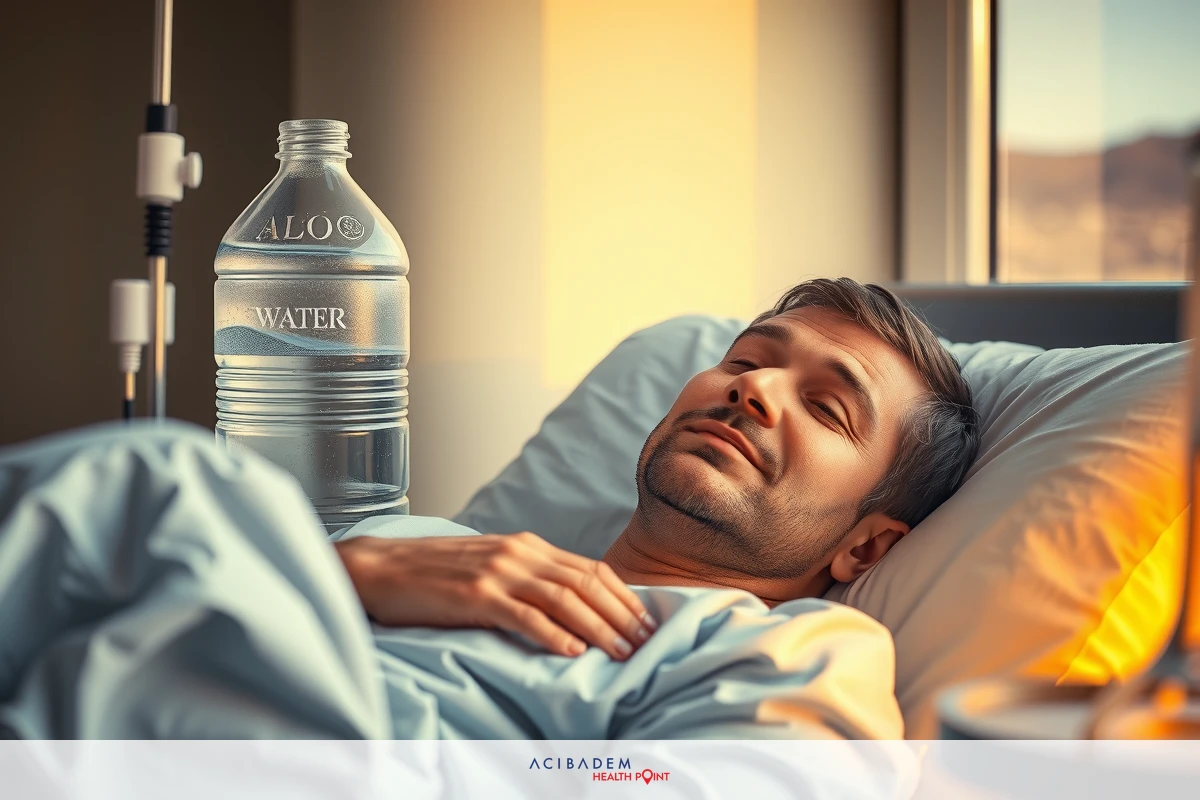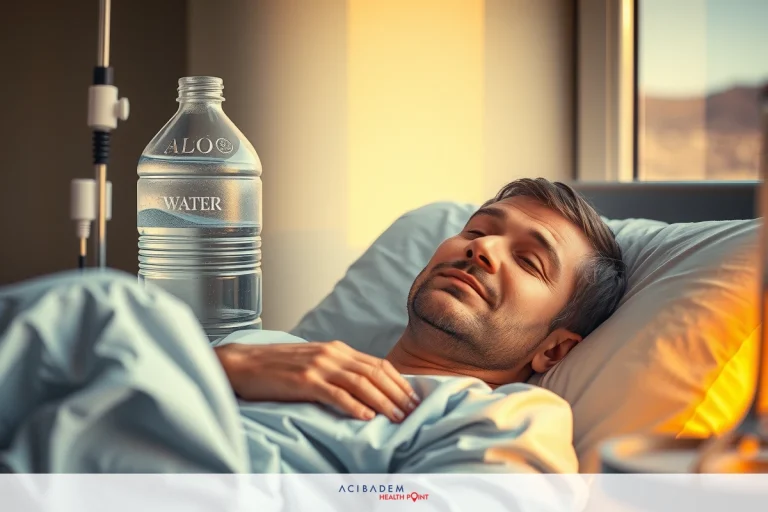How to Drink Water After Rhinoplasty
How to Drink Water After Rhinoplasty Rhinoplasty, is a prevalent form of plastic surgery that encompasses alterations to the shape or function of the nose. Despite its routine nature, post-surgery care stands as a pivotal factor in ensuring a successful recovery. Within these post-operative practices, maintaining proper hydration emerges as a vital component. Beyond aiding the healing process, adequate hydration also assists in managing any potential discomfort or pain that may manifest after the surgery.
The daily recommended water intake can vary depending on several factors, including the patient’s overall health and recovery progress. Drinking water safely after rhinoplasty involves following certain guidelines to prevent any complications or discomfort. This article will provide practical advice on how to hydrate effectively and safely during your post-rhinoplasty recovery period.
Importance of Hydration
Hydration plays an essential role in the healing and recovery process after rhinoplasty. When you drink water, you’re not just quenching your thirst – you’re supporting your body’s overall health. After surgery, hydration becomes even more critical. Water aids in maintaining circulation and ensuring oxygen reaches our cells, helping with the healing process. It also helps flush toxins out of the body, which can accumulate after surgery. In the context of rhinoplasty, hydration can help manage swelling and promote faster recovery.
Post-rhinoplasty care involves several factors, but hydration is often underestimated for its numerous benefits. Drinking water helps keep the skin moist, which is particularly beneficial for those who have undergone rhinoplasty as it can help reduce dryness around the nose area. Staying hydrated can alleviate common post-surgery symptoms such as dry mouth or throat. This is especially important as the nasal passage may be blocked due to swelling, causing patients to breathe through their mouth more often.
The importance of hydration extends to the recovery stage after rhinoplasty as well. Regular water intake supports tissue repair and regeneration, vital for a smooth recovery process. Water can also aid in preventing constipation – a common side effect of some pain medications prescribed post-surgery. Given these benefits, patients are strongly advised to make hydration a key part of their post-surgery care routine after rhinoplasty.
Recommended Water Intake
Determining the right amount of water intake is integral to post-surgery care after rhinoplasty. While the standard recommendation for daily water intake is around eight 8-ounce glasses or 2 liters, this may vary based on individual needs and specific recovery conditions. For instance, if you’re taking pain medications that cause dry mouth, you might need to drink more water than usual. Similarly, factors like age, gender, weight, activity level, and overall health can influence your water requirements.
After rhinoplasty, it’s crucial to monitor your hydration levels closely. Signs of proper hydration include clear or light yellow urine and regular urination at least three times a day. If you notice darker urine or experience thirst frequently, these could be signs of dehydration that indicate your current water intake may not be sufficient. Dry skin, lips, mouth, as well as feelings of tiredness can also point towards inadequate hydration.
While there’s no one-size-fits-all answer for the exact amount of recommended water intake post-rhinoplasty, it’s essential to listen to your body’s signs and adjust accordingly. Keep a water bottle handy at all times and make a habit of sipping throughout the day instead of consuming large amounts at once. This can help maintain steady hydration levels and aid in your recovery process. Remember to consult your healthcare provider if you’re unsure about your personal hydration needs during your post-surgery care period.
Tips for Drinking Water Safely

Following rhinoplasty, it’s not just the amount of water intake that matters; how you drink water can also impact your comfort and recovery. Certain precautions can help ensure that your hydration process is both safe and comfortable during the postsurgery recovery period. Here are some practical tips to guide you:
- Sip Slowly: Avoid gulping down water quickly. Take small sips instead to prevent discomfort or choking, especially if your nose is still swollen or congested.
- Use a Straw: If you find drinking directly from a glass difficult, consider using a straw. It allows for controlled sips and can be more comfortable during the initial recovery phase.
- Stay Upright While Drinking: To prevent choking or coughing, try to stay upright while drinking. Avoid lying down immediately after hydration.
- Avoid Hot Liquids: Extremely hot liquids may cause discomfort around the surgical area. Opt for cool or room temperature water.
- Hydrate Throughout the Day: Instead of drinking large amounts at once, try to spread your water intake throughout the day.
- Keep a Water Bottle Handy: Having a water bottle within arm’s reach can remind you to stay hydrated and makes it easier to track your daily water intake.
Remember, these tips are general guidelines for safe water consumption after rhinoplasty. Always follow the specific instructions provided by your healthcare provider tailored to your individual recovery needs.
How to Drink Water After Rhinoplasty: Frequently Asked Questions
How much water should I drink after rhinoplasty?
The recommended daily water intake after rhinoplasty can vary based on individual needs and recovery conditions. Generally, aim for around eight 8-ounce glasses or 2 liters of water per day. It's essential to listen to your body's signals and adjust accordingly. If you experience dry mouth or darker urine, it may indicate the need for increased water intake.
Can I drink other fluids besides water?
While water is the best choice for hydration, other fluids like herbal teas and clear broths can also contribute to your overall fluid intake. Avoid beverages that are high in sugar, caffeine, or alcohol, as they can dehydrate you.
Is it normal to feel thirsty after rhinoplasty?
Feeling thirsty after rhinoplasty is common due to various factors such as medications and the healing process itself. It's important to stay hydrated and drink water regularly, even if you don't feel thirsty.
Are there any risks if I don't drink enough water after rhinoplasty?
Insufficient water intake can lead to dehydration, which can hinder the healing process and potentially cause complications. Dehydration may result in dizziness, fatigue, dry mouth, and other discomforts. It's crucial to prioritize hydration during your recovery.
When can I resume drinking hot beverages like coffee or tea?
It is generally recommended to avoid hot beverages immediately after rhinoplasty, as they can irritate the surgical area. Consult with your surgeon regarding when you can safely resume drinking hot liquids, as this timeline may vary depending on your specific recovery progress. Remember to consult your healthcare provider for personalized advice and recommendations regarding your post-rhinoplasty care and hydration needs.











